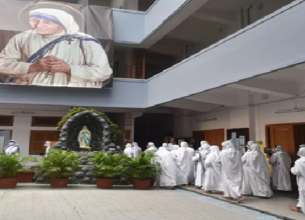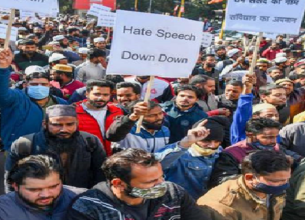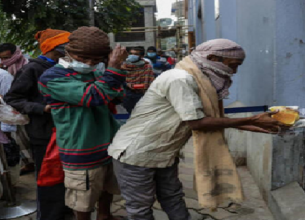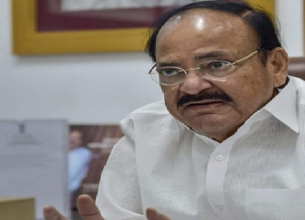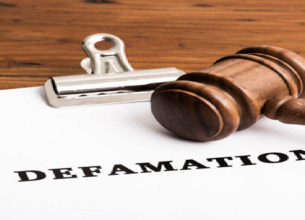FCRA Nod for MoC Restored
08, Jan 2022
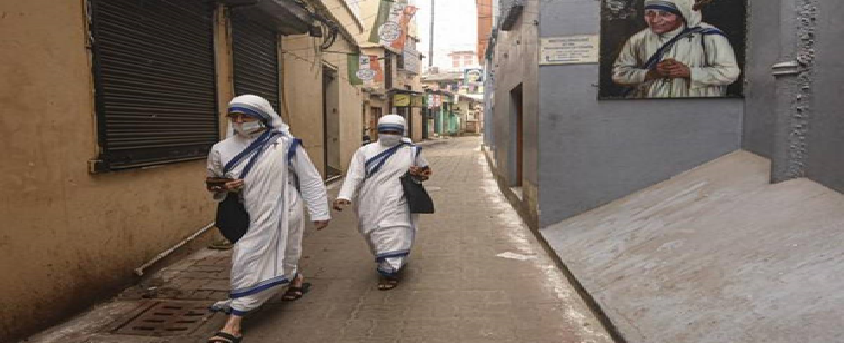
Prelims level : Policies
Mains level : GS-III Role of external state and non-state Actors in Creating Challenges to Internal Security.
Why in News?
- The Ministry of Home Affairs (MHA) recently restored the FCRA registration of Missionaries of Charity (MoC), the Catholic religious congregation set up by Nobel laureate Mother Teresa.
About the News:
- The Foreign Contribution Regulation Act (FCRA) registration is mandatory to receive foreign donations.
- The move comes just days after the Ministry issued a statement that the FCRA registration of the MoC was not renewed as “some adverse inputs were noticed”.
- The registration was renewed, making MoC eligible to receive and utilise foreign funds in its bank accounts even as the U.K Parliament debated the issue, seeking to know if the British government had raised the issue of blocking of overseas funds of the MoC and other NGOs with India.
Background:
- The registration of thousands of NGOs was up for renewal in 2020-21. The Ministry had declined to renew the FCRA registration of 179 NGOs, while 5,789 associations did not apply for a renewal before the December 31 deadline.
- After the exercise, the number of active FCRA-registered NGOs is down from 22,762 to 16,907.
How FCRA Regulates NGO funding?
- FCRA regulates foreign donations and ensures that such contributions do not adversely affect the internal security of the country.
- The Act, first enacted in 1976 was amended in the year 2010 and then 2020.
- Section 5 of the Foreign Contribution (Regulation) Act, 2010 gives the Union government “Unchecked and Unbridled Powers” to declare an organisation as being one of political nature and deny it access to funds from sources abroad.
- FCRA is implemented by the Ministry of Home Affairs.
Applicability:
- The provisions of the Act apply to the territory of India, to citizens of India who may be outside India and to companies or their branches outside India that are registered or Incorporated in India.
- The entities covered by the Act include an individual, a Hindu undivided family, an Association, or a Registered Company
Prior Reference Category under the Act:
- It implies that to donate to such an NGO, a foreign donor has to take prior clearance from the Ministry of Home Affairs.
Latest 2020 Amendments and Criticisms Associated:
- The amendments mandated that registered NGOs open a designated account in the main branch of the State Bank of India in the Capital in which the foreign contributions to their various causes would exclusively land.
- The petitioners have argued that this measure would be cumbersome for NGOs operating in rural India and far away from the Capital.
What is a Foreign Contribution Under FCRA?
- “Foreign contribution” under FCRA covers any “donation, delivery or transfer made by any foreign source of any article” as long as it is not given as a gift for personal use, or if its market value in India at the time it was made is “not more than such sum as may be specified from time to time by the Central government”.
Exceptions:
- Any currency, or security can fall under the ambit of the Act though it excludes any money received “by way of fee or towards cost in lieu of goods or services rendered by such person in the ordinary course of his business, trade or commerce whether within India or outside India”.
- Neither are donations made by Non-Resident Indians (NRIs) considered to be “foreign contribution” although a donation from a person of Indian origin who has assumed foreign nationality is treated as as “foreign contribution”.
Who Cannot Receive Foreign Contribution?
- A host of entities are barred from receiving foreign funds, including election candidates, those connected with a registered newspaper, judges, government servants or employees of any entity controlled or owned by the Government and Members of any Legislature. Political parties and their office bearers, too, are Prohibited from receiving Foreign Funds.



